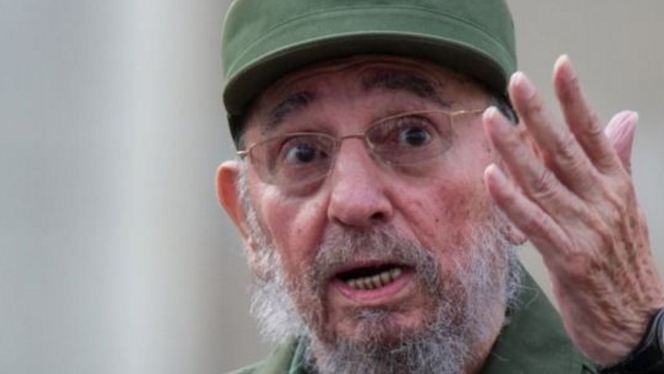Fidel Castro, long the symbol of the failed system of government called communism, died at his home in Havana, Cuba late in the evening of November 25. He was 90 years old.
The cause of death was not announced by the Cuban government, now headed by his brother, Raul Castro. No other details of Fidel Castro's death was immediately forthcoming.
"The commander in chief of the Cuban revolution died at 22:29 (EST) this evening (Nov. 25)," said Raul Castro in tersely announcing his brother's death.
An unrepentant communist to the end, the dictator Fidel Castro ruled Cuba with a bloody fist as First Secretary of the Central Committee of the Communist Party of Cuba from 1961 to 2011, and as President from 1976 to 2008 when he ceded power to his younger brother Raul because of failing health.
After the Cuban Revolution, Fidel Castro sought and failed to transform Cuba into a socialist paradise, and later failed to export Cuba's brand of violent communism into neighboring Latin American states.
His close friend, the late Ernesto "Che" Guevara, an Argentinian doctor, was killed in Bolivia in their utopian quest to spread communism in Latin America. Guevara partnered with Castro to overthrow the corrupt government of pro-U.S. dictator Fulgencio Batista in 1959 after a three-year guerilla war.
As Cuba's communist dictator, Castro's aim was to defeat U.S. imperialism and infuse Cubans with a sense of nationalism. In his campaign to achieve these goals, however, Castro violated civil liberties, forcing many Cubans to flee Cuba for Miami.
Castro, whose full name is Fidel Alejandro Castro Ruz, was born August 13, 1926 in Birán, Holguin Province to a wealthy family.
A true Marxist-Leninist, Castro turned Cuba into a one-party communist state under the Communist Party he headed. Cuba was the first communist state in the Western hemisphere and a source of immense irritation to the United States since the 1960s.
Castro's friendly relations with the communist Union of Soviet Socialist Republics led the administration of U.S. President John F. Kennedy to launch a covert operation to overthrow Castro.
That anti-Castro U.S. campaign run by the CIA led to the disastrous Bay of Pigs Invasion fiasco on April 17, 1961. Communist forces personally led by Castro defeated the CIA-sponsored paramilitary group, Brigade 2506 whose 1,500 men invaded Cuba to overthrow Castro. The U.S. proxy invasion was defeated after three days of fighting.
In response to the failed Bay of Pigs Invasion, Soviet leader Nikita Khrushchev agreed to Cuba's request to deploy Soviet nuclear missiles in Cuba to deter future U.S. harassment of Cuba. This decision led to the Cuban Missile Crisis from Oct. 16 to 28, 1962.
The Cuban Missile Crisis, which almost triggered World War III, ended when Kennedy agreed not to invade Cuba again and Khrushchev agreed to withdraw Soviet nuclear missiles from Cuba.
Fidel Castro will be cremated on November 26.



























